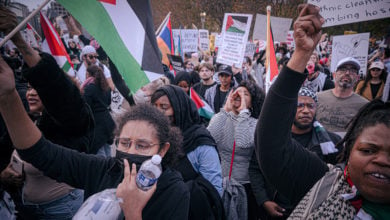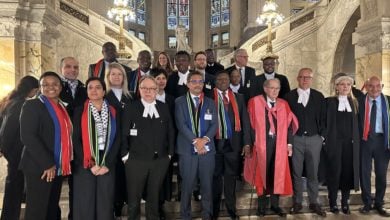For the first time since the invasions of Afghanistan and Iraq, the U.S. military and its allies suffered more combat deaths in Afghanistan than in Iraq over the course of a month.
|
According to a CNN report, attacks by the resistance against occupation forces in Afghanistan have been on the rise over the last four years. There were 50 percent more attacks in 2007 than there were the year before—7,143 and 5,174, respectively. This year, resistance forces carried out 2,999 attacks through June 6. (June 16)
The imperialists and their compliant media say the continued operation of the Taliban and al-Qaida in Afghanistan is the reason for this historic first. They gloss over the role of the continued occupation in fueling the growth of resistance.
On June 11, Prensa Latina News Agency reported on an imperialist war crime as the result of a U.S. air strike against a village in the Paktika province. According to tribal council members of the region, 40 civilians were killed and several homes were destroyed in the bombing. The U.S. military stated that “only” four civilians died in addition to 30 rebels. Over 1,300 people, mostly civilians, have been killed in Afghanistan in 2008 as a result of the imperialist occupation.
The imperialists, as history has shown, fail to take into account the desire of a people for self-determination when calculating military maneuvers. The Pentagon assumed that overwhelming military superiority would determine the outcome of the invasions and occupations of Afghanistan and Iraq. To their dismay, the resistance forces, which come from the occupied people, are able to strike against the occupation forces and dissolve into the population from which they are drawn.
Washington casually carries out air strikes targeting villages that have no anti-aircraft weapons, then arrogantly blame the resistance for civilian deaths. “[The resistance] can just put down their guns and blend in [with the local population]. NATO may have to decide to bomb and that could bring civilian casualties,” said Norine MacDonald of the Senlis Council, an imperialist think tank with offices in Afghanistan. (CNN, June 16)
The racist argument takes for granted that NATO not only has an inviolable right to attack those who resist occupation, but that it has the right to kill civilians in the process. Not surprisingly, such pro-imperialist pronouncements have won little sympathy from Afghanis.
Washington scrambles to keep control
The growing resistance in Afghanistan has created a crisis for the U.S. client government of Hamid Karzai and its backers. Karzai and U.S. officials complain that Pakistan is not doing enough to combat the Taliban and al-Qaida in Pakistani territory. The Bush Administration has been able to count on the Pakistani regime as an ally in the U.S. occupations of Afghanistan and Iraq.
Nevertheless, Pakistan has been at odds with both Afghanistan and the United States when its own sovereignty has been put at risk. U.S. aircraft recently violated Pakistani air space by conducting bombing sorties that killed 11 Pakistani troops. U.S. military officials said they were seeking out insurgents. Pakistan called the raid “unprovoked and cowardly.” (Voice of America, June 16)
At a news conference in Kabul on June 15, Karzai said Afghan forces were prepared to cross the Afghan-Pakistani border in pursuit of resistance forces. Pakistan rebuked Karzai by issuing a warning to the Afghani ambassador stating that his country should respect mutual borders. Pakistani Foreign Office spokesman Mohammad Sadiq said in a statement, “Pakistan shall defend its territorial sovereignty.”
In the meantime, the Bush administration has been trying to garner additional support from other NATO countries. Britain’s prime minister, Gordon Brown, recently pledged a small number of additional troops. The persistent efforts to increase troop contributions from allies reflects the military predicament facing the world’s most powerful imperialist power.
While U.S. officials and its allies fumble to get a grip on the situation, resistance actions have grown more brazen. Taliban fighters recently ambushed trucks carrying helicopter parts, taking vast amounts of hardware including four engines worth more than $13 million. More than 800 inmates escaped from the main prison in Kandahar City when Taliban forces blasted the walls with rockets and bombs on June 13. News reports detail the occupation of at least five villages in southern Kandahar by hundreds of Taliban forces.
Afghan and NATO land and air forces responded the only way they know how and launched a massive assault on the region—certain to bring more death and destruction, but unlikely to turn the tide for the occupation.






